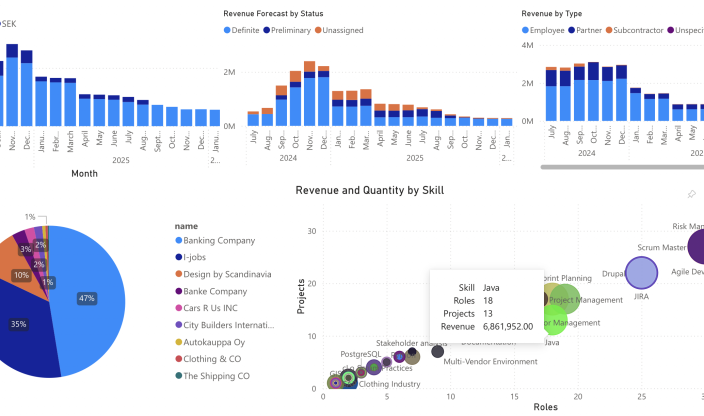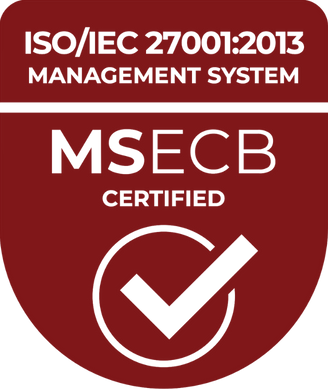Four tips on how to build a strong corporate culture

A few years ago, the leading researcher and author John P. Kotter performed a comprehensive study in which he looked at 200 American companies and compared culture and performance.
The findings were clear: culture-driven companies performed better in all areas, including turnover, recruitment, growth and returns that were several hundred per cent higher than other (non-culture-driven) companies. Substantial research has been conducted within this area, and the results have been similar, which leads us to the obvious question: Why don’t all companies adopt a values-driven and culture-driven approach, when such an approach obviously works so well?
The answer to that question is that, these days, most companies have in fact realised the importance of values and how they can make an entire organisation more effective by acting as a compass for all employees when decisions and behaviour are to be calibrated in relation to customers, co-workers, partners, etc.
The challenge, however, lies in the HOW, and it is here that companies most often fall short, not because their values or strategies are not well-considered, but because they don’t really know how they should break them down into concrete forms of behaviour and implement such behaviour throughout the entire organisation. Here are my four best tips on how to build a strong and productive corporate culture:
1. Clear vision and higher purpose
People don’t want to go to work simply to receive a salary on the 25th of each month. They want to be part of something that is bigger than what they themselves are doing, and they want to know and feel that their work and contribution is making a difference. It is therefore extremely important to have a clear vision with a higher purpose; a vision that everyone not only can understand, but also can feel and believe in; a vision that acts as a guiding light throughout the company. Such a vision creates a sense of security for the organisation by enabling everyone to know the purpose of the company. In a way, a comparison can be made with the human body; earning money is the blood, we need it to live, it is a hygiene factor, but then the more interesting aspect is what we actually do with the life we achieve, and why.
2. Clear and effective values
Values act as a compass, guiding you in your daily activities. They represent your core culture, and they set the rules by which the organisation abides. They should always be calibrated in relation to your vision and mission, to ensure that there is a constant and consistent thread running throughout the company, something that people can embrace and break down into concrete forms of behaviour. It is of the utmost importance that the work you carry out in relation to values is well established and accepted within the organisation, and that it can be implemented at a behavioural level. There are different schools of thought when it comes to how many values a company should have. Some say that a company should not have more than three core values, to ensure that it is as easy as possible for people to embrace them in their daily activities. Zappos, on the other hand, a company that is extremely well renowned for its culture and customer service, has no less than 10 core values, all of which are linked to the business deal.
3. Discipline when recruiting
Identifying and finding the right people for a culture-driven company is by far the most important aspect of the recruitment process; first who, then what. Formal skills and knowledge have their place, of course, and in many cases they must also be there to provide a certain minimum level of formal competence. However, it is much more important to focus on the assessment of values and attitude. The people who make the best employees are people with an inner motivation and a passion for what they do. They are driven by a desire to be the best that they can be within their chosen field or function, and they usually want to develop and be stimulated, while external rewards such as bonuses are of less importance to them. It is easier to provide an employee with additional training and education that to change his or her values or attitude, and it requires discipline to ensure that you do not lower the bar in terms of the types of person you allow into the organisation.
4. Lead with values
When organisations grow, an increasing number of systems, processes and policies are often added and implemented with the aim of assuring the quality of the work. This usually results in the creation of bureaucracy and an inflexible organisation, which in turn becomes counterproductive as the organisation becomes less flexible and less adaptable in relation to customers and market developments.
Values-oriented leadership is based on just the opposite; in other words, providing people with as much freedom as possible to act in line with the company’s values in their performance of the operational business activities, and trusting them to do so. The values act as a daily guide in relation to everything from how we treat our customers to how we make executive decisions.
Guestblogger - Tony Pedersen, Head of HR at tretton37
Guestblogger - Tony Pedersen, Head of HR at tretton37
You may also like...
All posts
Dec 18 2025 · Consulting
Santa’s Letter to the Consulting CEO

Dec 15 2025 · Consulting
Building a High-Performing Consulting Firm

Dec 01 2025 · Consulting
🏆Yellow Elk Sweeps All Three Awards at Konsultkollen 2025

Oct 10 2025 · Consulting, Entrepreneurship
🚀 The Head of Analysis: Seven Success Factors for Consulting Firms 2025–2030

Sep 10 2025 · Consulting
“It’s About Growing Right – Not Fastest” – Netlight Scales Up with Culture and AI in Focus

Aug 21 2025 · Cinode, Consulting
🚀 A Clear View and Fast Execution – Our Journey with Cinode

Apr 30 2025 · Consulting
Understanding the psychology behind pricing

Apr 15 2025 · Consulting
How to set (the right) price?

Mar 18 2025 · Consulting
How do we charge for the value of our services?

Mar 11 2025 · Consulting
New AI Act: Checklist for Consultants and Consulting Firms

Feb 27 2025 · Consulting
Maximize Insights in Your Consulting Business with Cinode and Power BI

Jan 31 2025 · Consulting
